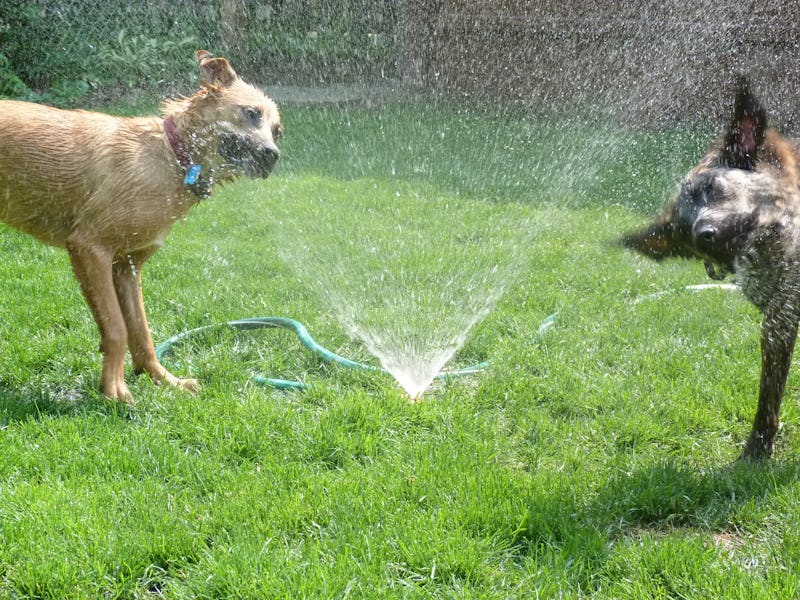California Is Drought-Shaming Its Greatest Water Wasters, Pointlessly
Agencies are calling out over-use, but psychologists say public shaming won't change behavior.

Looks like some people are missing their “Power Shower Hour.” The East Bay Municipal Utility District has released a roundup of its most excessive water users. The 1,108-name list include surnames, city of residence, and units of usage over a 60-day billing cycle — each unit is 748 gallons of water. Topping the list is George Kirkland, formerly of Chevron and with a property value at $3.5 million, at 1009 units. Third is Billy Beane, the Oakland Athletics executive who was the subject of the film Moneyball.
Explaining EBMUD’s decision to release the names, spokeswoman Abby Figueroa said that they were required by California’s Public Records Act to release the information of those who breached the 1,000-gallon-a-day household limit.
“We’re protective of our customers’ information,” Figueroa said at press conference. “We don’t believe drought shaming is the way to go.”
Regardless of whether the water and sewage treatment provider intends to scold customers, shame has become a go-to reaction to the drought in California. Neighbors are encouraged to low-key call out neighbors via a government website that collects complaints and photos of water waste. More public are apps like aptly named “DroughtShame,” which lets users take a photo and upload the address of places they feel are overusing water. Follow the #droughtshamming on Instagram or Twitter and you’ll see photos of lush green lawns getting called out by drought vigilantes.
You might assume being publicly called out for water waste in a state that considers drought a crisis would be a potent tool in curbing overuse. But studies show that shame is actually pretty ineffective.
“Generally public shaming doesn’t really result in very many positive outcomes and changes,” clinical psychology professor June Tangney tells Inverse. “If you can find a way to appeal to someone’s sense of responsibility than sense of shame, then that is a more constructive way of bringing about change.”
Tangney says that researchers don’t have a clear idea of whether shame can be effective, but so far, signs point to no.
“The research is very mixed and for the most part, when people feel shame — especially when they are being shamed by other people, they are inclined to get defensive and blame other people,” Tangney says. “There really is not a lot of strong evidence that they will change their behavior.”
While guilt and shame are related emotions, the former is more efficient in resulting in changed behavior. When someone feels shamed by another, his or her natural inclination is to escape responsibility. Guilty people are motivated to confess, apologize, and repair. In a study of incarcerated offenders, Tangney found that inmates who were inclined to feel shame and be blameful of others had a higher chance of recommitting a crime.
Tangney said it is probable that drought-offenders would be more likely to revise their ways if they were approached in a way that would provoke guilt, as in, “This thing you did is problematic and here is what you need to do to stop the harm.”
It’s hard to think of how many more ways California’s government can suggest people step up to help with the drought. But it’s unlikely that publicly listing names, or calling out people on social feeds, will make water abusers care.
What could work? Charge those suckers. A University of Surrey study found that more than guilt, financial penalties were a more effective way to curb poor environmental behavior.